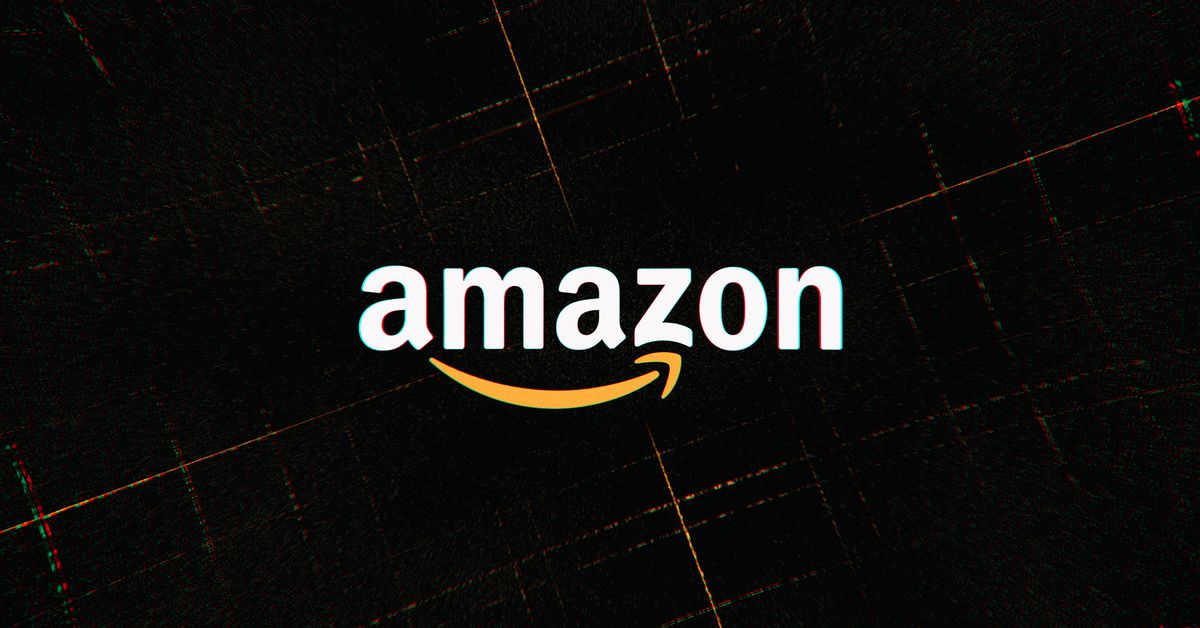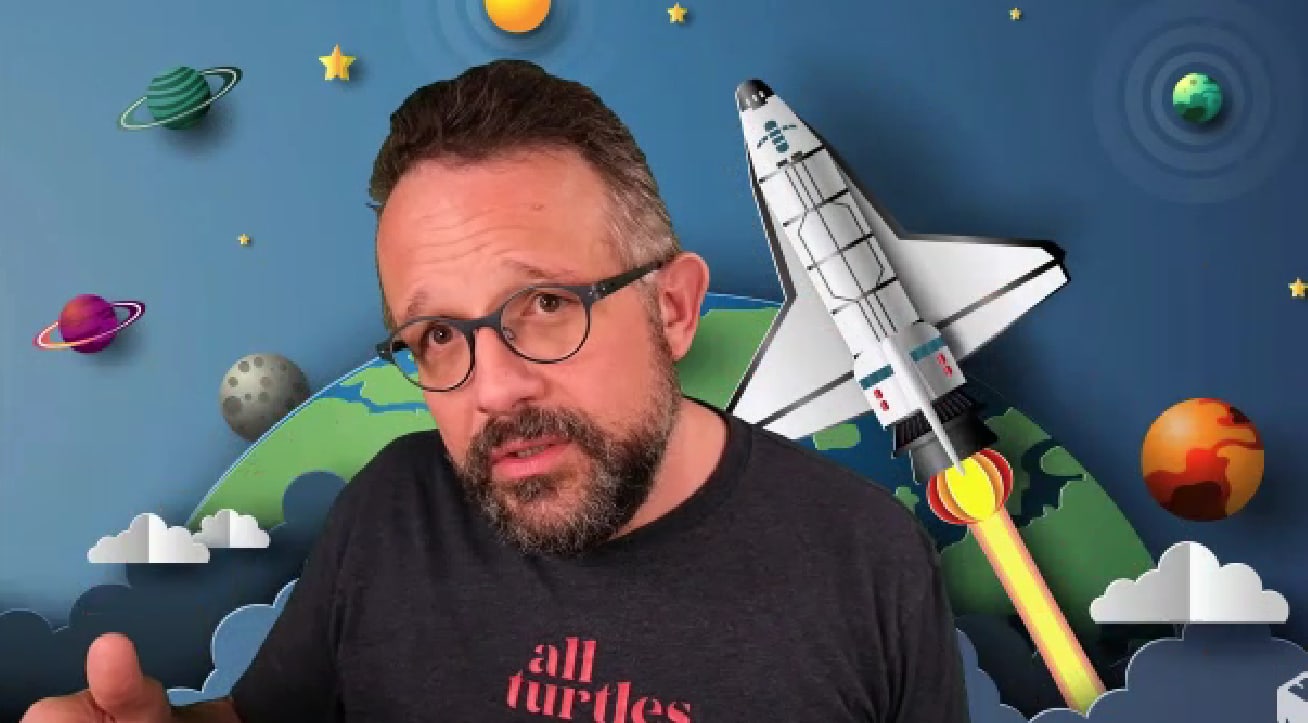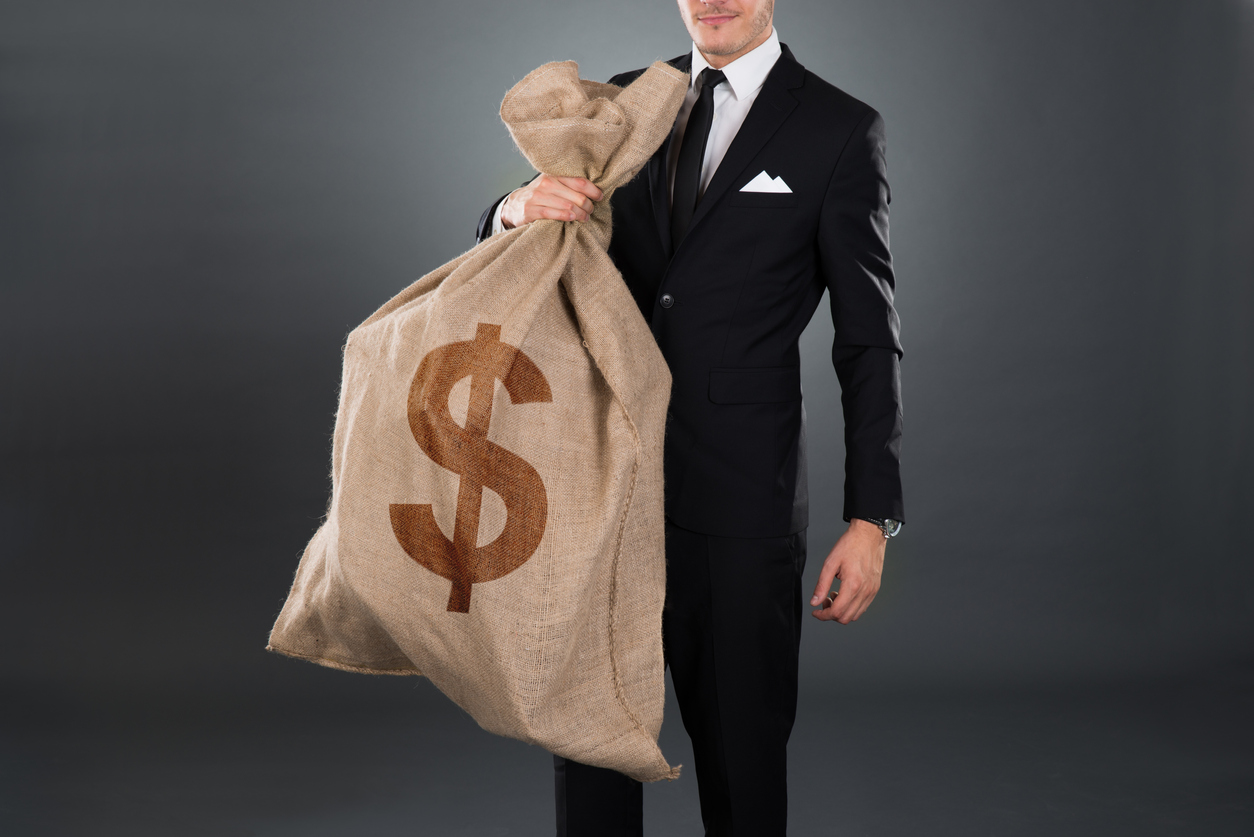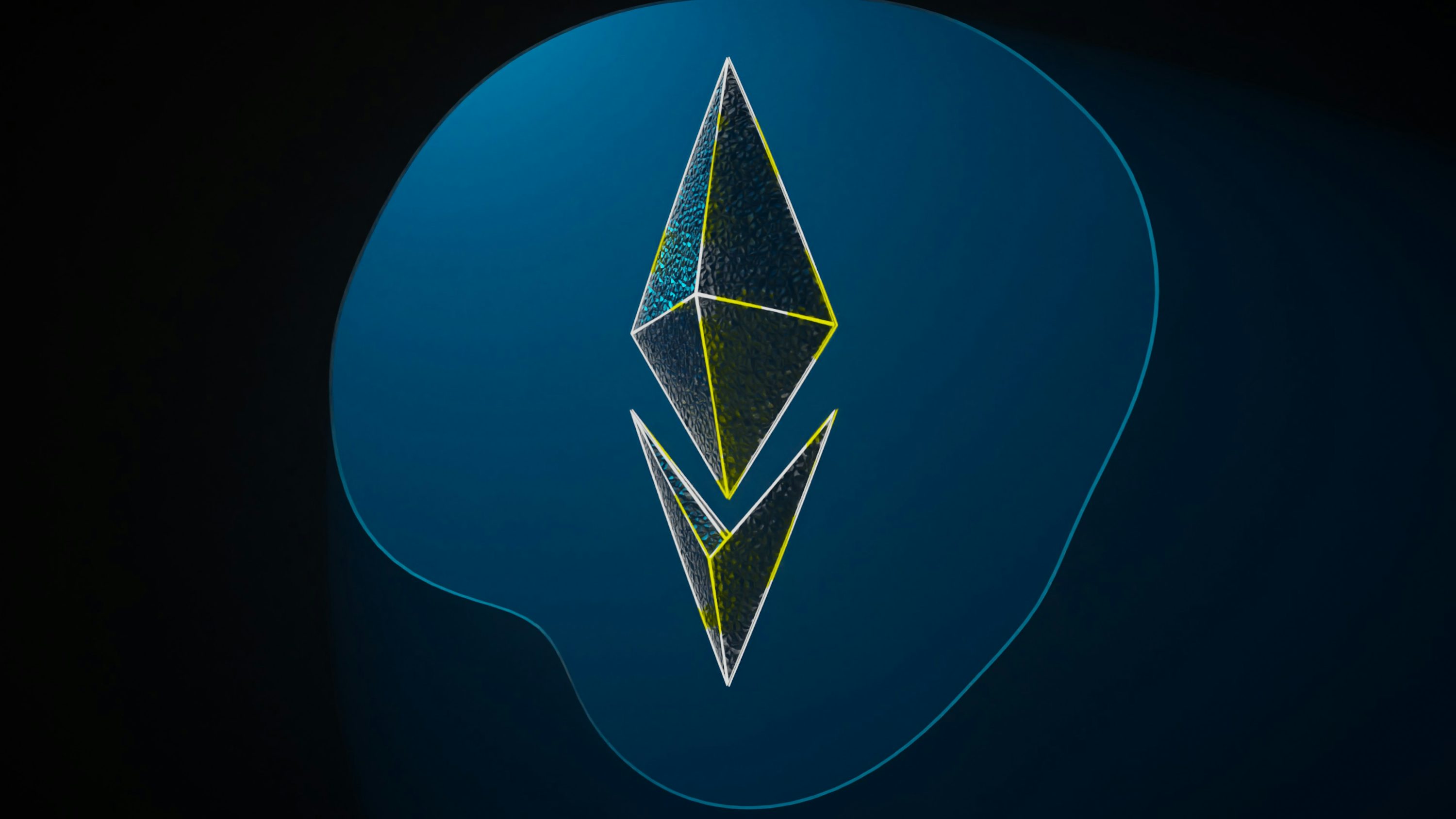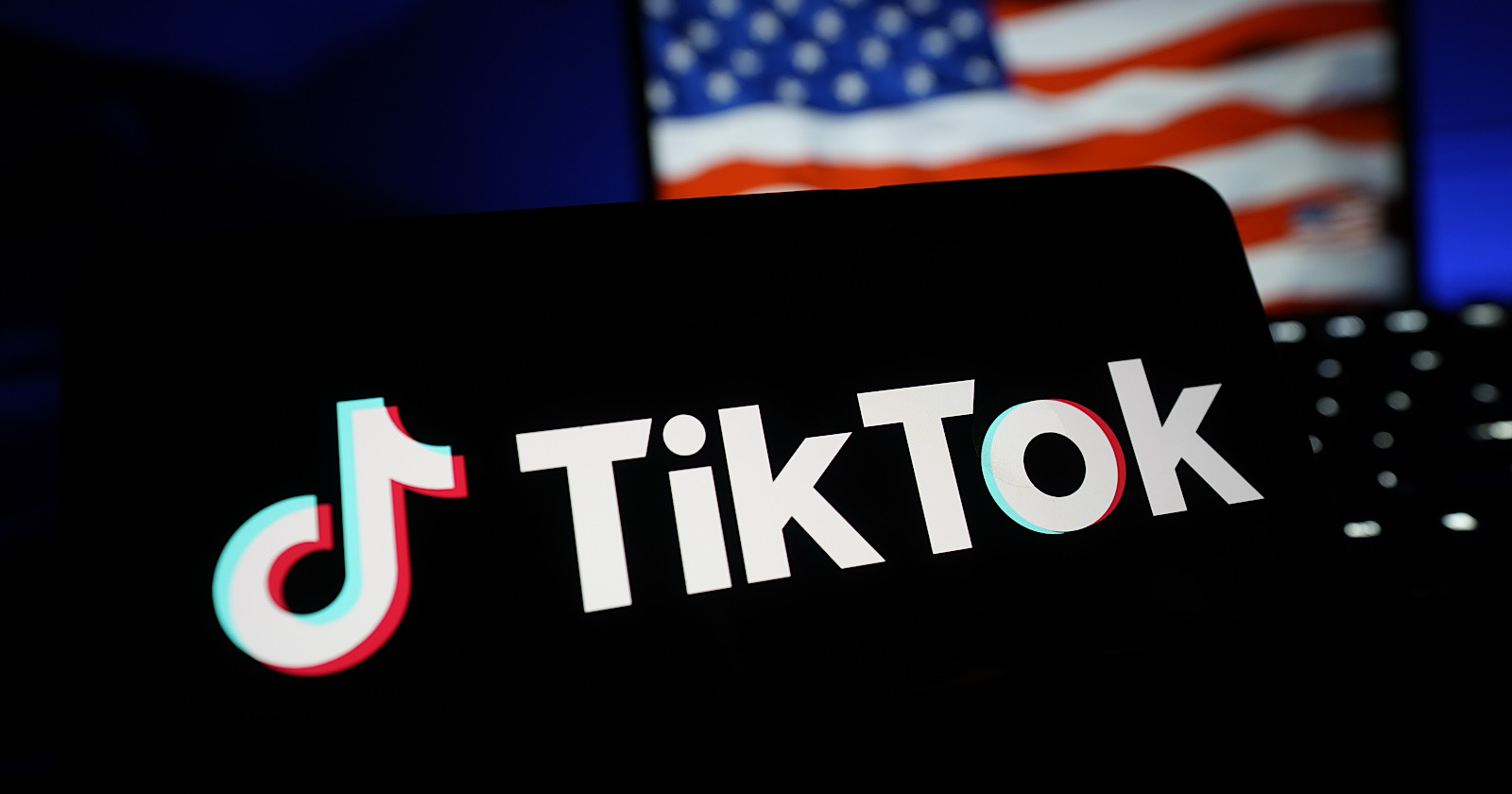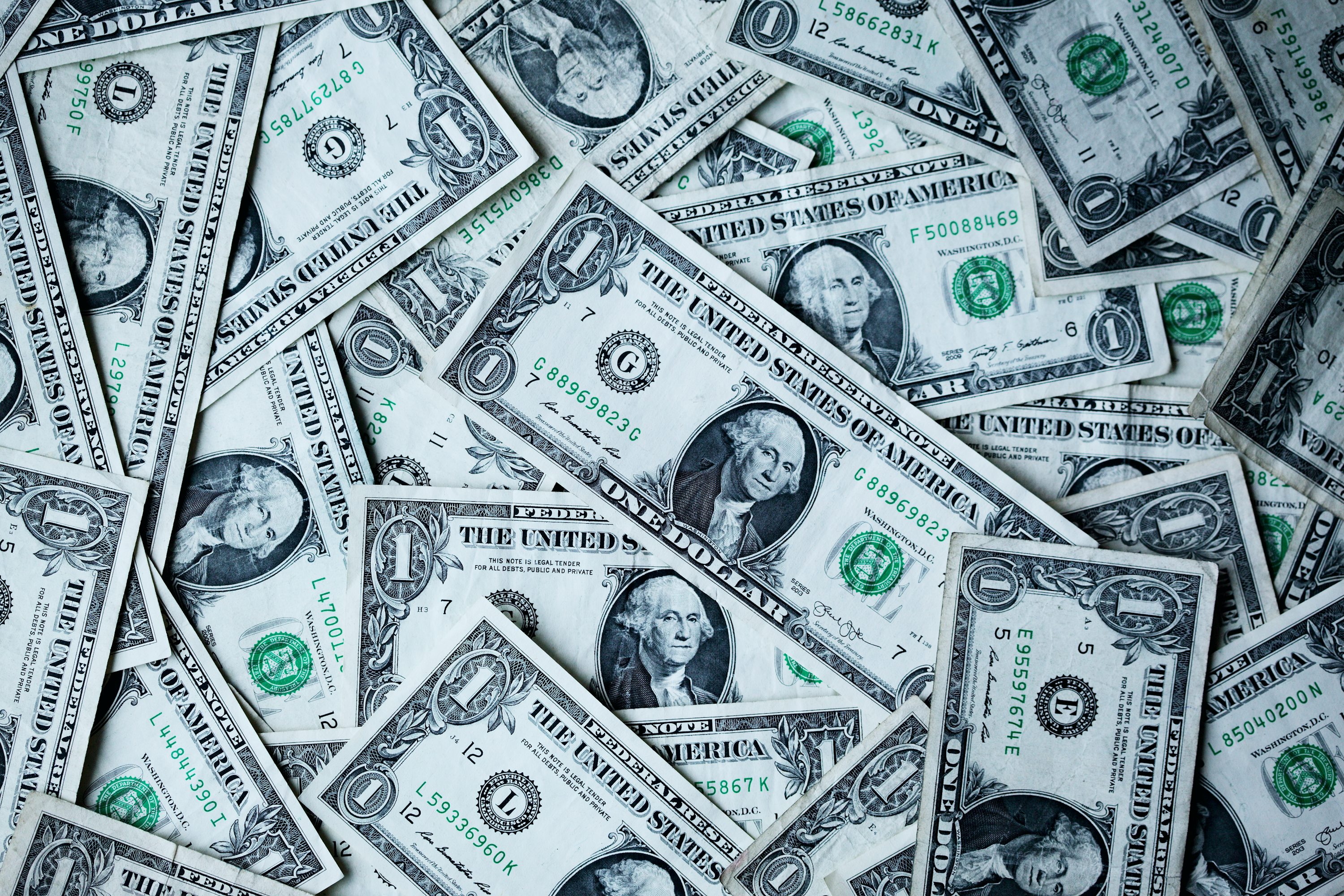Hustler at the end of the world
Illustrations by Emily Lopez for The Verge authors_name publish_date hero_image_large As the world shut down in March 2020, anxious knowledge workers barricaded themselves at home, scrubbing produce with soap. Fear sometimes manifested as altruism: checking on neighbors, organizing mutual...
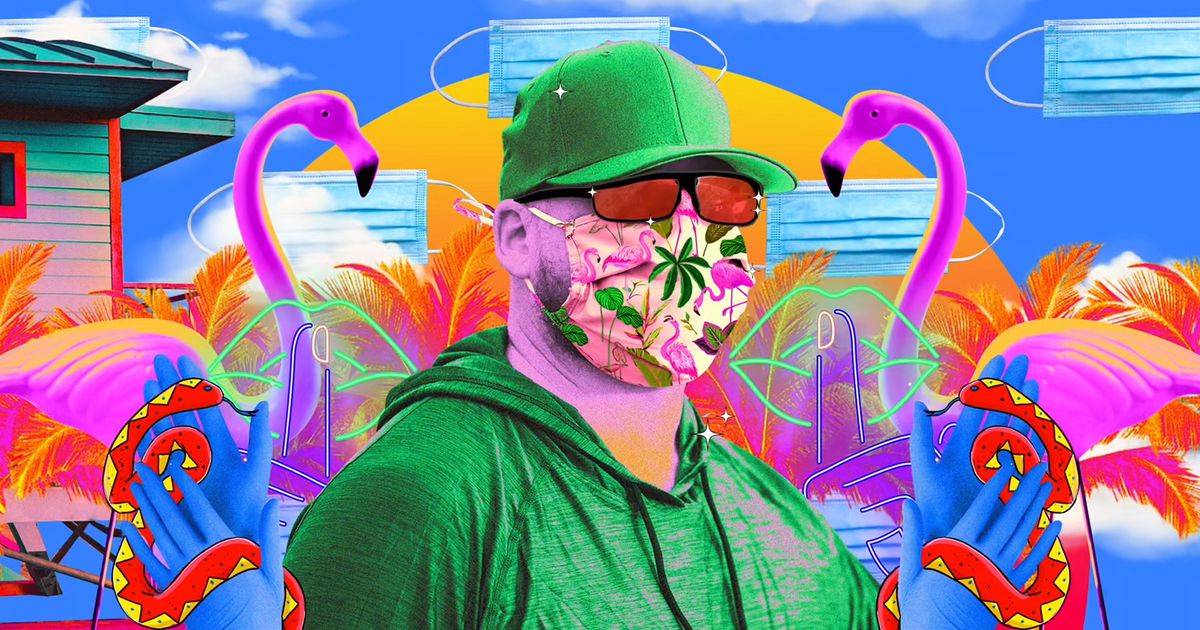
:quality(90):no_upscale()/cdn.vox-cdn.com/uploads/chorus_asset/file/23390060/Dropcap_A_2.jpg)
As the world shut down in March 2020, anxious knowledge workers barricaded themselves at home, scrubbing produce with soap. Fear sometimes manifested as altruism: checking on neighbors, organizing mutual aid. But the crisis also prompted cynics to root around for new loopholes to exploit, for ways to raise prices, feign hardship, get a rent reduction, slack off. For every person who spent that spring self-soothing with Animal Crossing or struggling to manage small children, there was someone else out there thinking, “How can I take advantage of the chaos?” This is a story about one of those people.
You see, freaking out was for normies. In the early days of the pandemic, a true hustler smelled opportunity, and Hiam Kaplan is a true hustler.
From his luxury condo by the beach, Kaplan watched the system collapse. An outbreak here, a workers’ strike there. He knew that one man’s desperation is another’s windfall, so he scanned the news, considering his options. All it took was a single airborne pathogen to reveal the precarity of modern life. Grocery shelves were empty, but farmers were pouring out oceans of milk. The masses were buying only what could safely be delivered through the apparent magic of an on-screen click. But it wasn’t magic. On the other end of that click was a fragile labyrinth of factories, warehouses, trucks, trains, planes, cranes, cargo ships, and all along the way, humans: living, breathing, miserable, virus-spewing humans, executing the most boring yet dangerous tasks imaginable, cogs in the commerce machine, risking their lives to get you your Doritos, your dildo.
Kaplan had an in-home dog-training company that, like many businesses, was impossible to sustain under quarantine. So what now? The stock market had crashed. No one knew what was going on, who to trust, what to believe. Morgues were full. Ventilators were rationed. Personal protective equipment (PPE) was scarce. Anything felt possible.
His first move was to level up his home life. Kaplan had been on a few dates with a Brazilian woman named Milla, who barely spoke English. She worked in fashion and had come to the United States hoping to open a showroom for designers from back home. Now she just wanted to be safe. Everything was closed; everything was canceled. The borders were closing, and the friend she’d been staying with had COVID-19. Kaplan asked Milla to move in with him for however long this lockdown lasted.
The two often needed a translator app to communicate, but Milla decided yes, she would stay with him.
Soon he was in conversation with an old contact. Talk turned to how medical supplies and everyday commodities like toilet paper were now like drugs, bought and sold by shifty operators at wildly fluctuating prices. Hoarders were stockpiling necessities. The global economy had become, almost overnight, a topsy-turvy gray market — something Kaplan knew a lot about.
“Hey, you still got a lot of connections,” the guy said. “Why don’t we sell some PPE?”
Kaplan had no experience in the healthcare industry. But he thought, well, there are only three ways to get rich: inherit it, sell something with mass appeal, or get in between money moving. Maybe this was his moment. Masks, gloves, gowns, face shields — this stuff was in short supply but high demand. A lot of money was moving.
Besides, he told himself, the doctors and the first responders and the essential workers — these people needed him. He knew how to find a deal. He knew how to navigate the sharks and the con artists. He knew how to wrangle a product from point A to point B.
This was it: his chance to make a difference, to feel like a hero, to donate his time in service of a greater good while also making money and leveraging the uncertainty. It was perfect. He felt emboldened, inspired by his own luck. He’d been training his entire life for this. He was ready. The time had come for him to use his skills to save the world.

:quality(90):no_upscale()/cdn.vox-cdn.com/uploads/chorus_asset/file/23390059/Dropcap_A_1.jpg)
As a kid, Kaplan got in trouble at school for peddling candy and shoelaces and erasers in the hallways and stairwells. The principal called his father, who came in and said, “I can’t believe you did this!” But once they left the principal’s office, his dad leaned down and said, “Good job. Don’t let anyone tell you how you make your money or how much money you can make.”
That was all he needed to hear.
Kaplan went on to work in any lucrative, quasi-legal industry that would have him, from online sports betting to cryptocurrency. He’s hawked award-winning weed vape pens. He did stints at Playboy, Hustler, Penthouse, and Adult Friend Finder. He once installed touchscreen drug vending machines in a crack house so the dealer could avoid direct interactions with customers.
Today, at age 49, Kaplan looks like a strip club bouncer: bald, with a chinstrap beard and an inverted triangle torso, all shoulders and biceps. Actually, he used to be a strip club bouncer years ago, at a place he says was running guns and meth, until one night, a patron stabbed him in the hand, and he quit.
For the most part, living by his own rules has been fun. He’s partied at sex clubs in Amsterdam and canal-lined estates where guests use jet skis to get around. Even when things got tough, like after his father passed away, Kaplan knew he could count on himself. When his first wife left him, he got a tattoo in Hebrew that reads, “Never again should I put another’s needs before my own happiness.” Then, six years ago, one of Kaplan’s associates murdered another associate and then took his own life, apparently over a girl. A few weeks later, Kaplan’s sister died unexpectedly, from a pulmonary embolism likely caused by a blood-clot condition he soon discovered he also had. All at once, he realized life could end at any moment. Who had he become?
On a whim, he went to Brazil and started importing illegal CBD for kids with epilepsy and other conditions. Now he was doing more than just making money. “It was the first time in my life where I had someone thank me for doing something — genuinely, honestly thank me for improving their lives,” he recalled. It felt good. And it paid well. A few years later, he came back to the states and started training dogs. But when the coronavirus hit, the temptation to get back into hustling was too great to resist.
:quality(90):no_upscale()/cdn.vox-cdn.com/uploads/chorus_asset/file/23390063/Dropcap_K.jpg)
Kaplan soon found was not the only one jumping into the unstable markets created by the pandemic’s upheavals. His buddies from porn, from pot, from online gambling — many were now offering exclusive pricing on hand sanitizer and cotton swabs and surgical caps and toilet paper. Every morning, he donned wireless headphones and got into his brown leather anti-gravity chair, his legs above his heart to prevent blood clots, lips wrapped around a Camelbak nipple for hydration, face surrounded by screens: television, laptops, iPads, phones. Milla sat on the couch in a T-shirt that said SASSY, studying English. “I didn’t know exactly what he was doing, just watching his effort and hard work, daily,” she later wrote.
All day, Kaplan was on calls, on Telegram, on WhatsApp, chatting, schmoozing, connecting to people all over the world who said they represented hospitals and factories and financiers, figuring out who had access to what and who had the right paperwork and who wanted to buy and who wanted to sell and how could he get a few cents set aside as a broker’s fee on each box of 3M masks to add up to his own personal fortune.
Do you have 3m? one marijuana contact messaged him. My client needs over 1 mil per week.
A few cents multiplied by a million, direct to his bank account, every single week? Cha-ching!
How much is she paying and when does she need them by? he wrote back.
Now. Cheapest, she said.
You and everyone else. The price is through the roof.
In April 2020, he started negotiations on dozens of deals but only completed four small transactions, helping a police department, for example, order $458.50 of masks and gloves. He didn’t turn a profit, but he proved to himself that he could do this.
“There was a sense of being back in that adult world again, the land of misfit toys,” he told me, reminiscing about the porn industry. “You felt part of a community.”
He paused.
![]()
“The bad news is that people in that space are notorious for not being the most ethical.”
One PPE contact would “act all nice,” but at the last minute, the deal always fell through. This happened four times before Kaplan realized the guy was cutting him out by contacting the supplier directly. Another person told Kaplan they had 50 million boxes of gloves in a warehouse in Long Beach, California. He dreamed about all he could do after brokering such a large deal. Maybe he would start an off-grid, carbon-neutral city comprised of shipping container homes, run entirely on crypto?
But then he discovered there were no warehouses in Long Beach that could possibly store that many boxes of gloves.
“Those are the people I just blocked and disconnected from,” he said. “Either you’re too stupid to know you’re being scammed, or you’re in on it.”
Kaplan soon realized the volume of bullshit was way beyond anything he’d seen before. How was he supposed to assess the credibility of folks in far-away countries he had never visited, entirely over the phone?
Trust is the glue that holds the economy together, but now the world was entering an era defined by unease and suspicion. Consumers ordered products that never came. Bosses installed surveillance software to monitor employees working from home. Around 15 percent of the government’s Paycheck Protection Program loans went to liars.
Meanwhile, several of Milla’s relatives back in Brazil died of COVID. She was despondent. Her friend living nearby survived, though, so after a month with Kaplan, she decided it was safe to return to her friend’s place. They lasted only five days apart before he drove back to get her. What had started as a spontaneous bid for companionship was growing into a crucial source of support, especially as the outside world became scarier and scarier.
Shadowy actors seemed to loom behind every deal. Kaplan heard about PPE shipments stolen at gunpoint and federal agents seizing orders. At one point, he asked someone to go to Miami to check a pallet of supplies. Around 10PM, the guy told him the warehouse seemed sketchy. Then he stopped replying to texts. Kaplan panicked, thinking the guy had been killed or kidnapped. Ten days later, he resurfaced, claiming he’d simply left the country to visit family in Latin America. Kaplan didn’t know what to believe.
The problem was that deals depended on relationships, but relationships were fallible, human, subject to emotional attachment. Kaplan recalled the Russian proverb Ronald Reagan relied on when dealing with the Soviets: “Trust, but verify.” He started scouring business websites for inconsistencies and spelling errors. He took notes during calls for later confirmation. He bought background checking software and began screening for criminal records and cross-referencing office locations, which helped him discover business addresses that led back to vacant lots or demolished buildings, implying an offer to purchase, say, $30 million of goods was not legitimate.
He decided he might be more effective if he became an expert in a single product. Everyone else was obsessed with masks, so Kaplan chose gloves. Soon, he could speak in detail about nitrile butadiene rubber, the chemical used to make medical-grade gloves, and how to tell if a glove had the wrong amount by pulling the fingertips 12 inches to make sure they stretch and don’t snap. He learned which regions in Thailand, Malaysia, and China had all the glove factories. He became familiar with the brands that American hospitals prefer and the expected price differences between gloves that are 4-mil thick (for everyday use), 5-mil (for surgery), and higher (for chemotherapy).
By May 2020, even with all this research and effort and time on the phone, he was still knee-deep in swindlers touting deals that never materialized. He still hadn’t made any money.
I want to throw myself off a building, he messaged one contact. The animals are running the circus.
To make matters worse, living with Milla was becoming stressful. “We were completely isolated,” she later wrote. “After 3 months repeating the same scene every day, I felt like a plant, vegetating, always in silence, and despair started to hit hard.”
Then, by chance, The Wall Street Journal mentioned one of Kaplan’s Telegram groups in an article about shortages. A retired army officer turned government contractor named Rob saw the article and joined the group the next day.
“I was getting calls already to move stuff, and it was insane,” Rob told me.
Rob is the kind of person who knows how to get a shipping container out of a combat zone: a civil engineer, history buff, and self-described “old cold warrior” in his 70s, now helping to care for his dying, wheelchair-bound wife on their property in the mountains of a red state. (He’s also too paranoid about security to let me use his full name and location.) After a long military career, Rob took his talents to the private sector, managing logistics in Sudan, Colombia, and Iraq. He was involved in the Blackwater war-profiteering scandal that made Halliburton a household name. “I know how to get stuff done, I guess,” he told me with characteristic humility and folksiness. After years at a defense contractor, he said, “I made my guys a lot of money and decided I could do it for myself.”
In the first months of the pandemic, his company received urgent, irrational shipping requests, which he refused so as to protect his relationships with major air and sea freight operators. “You can’t just buy 1 million boxes of nitrile gloves on a Friday and get them on a Monday. It doesn’t work that way,” he explained. The lack of foresight infuriated him. He just wanted everything to be organized, to run smoothly. Like Kaplan, he was astonished by the scammers now flooding the market for essential goods. “Give me the Arabs any day over these people,” he said. “The supply chain got totally screwed up.”
Almost as soon as Kaplan started talking to Rob, he saw the older man had valuable connections and know-how. “Alright, I’m going to attach myself to this guy,” he decided. “He’s the grandpa everybody wants,” he said, “quiet and unassuming, but you never want to cross him.”
Rob, too, saw something in Kaplan and agreed to take the younger hustler under his wing. “He got into it. He saw there was money to be made,” Rob told me. He could tell Kaplan was “a quick study,” honest, hard-working, and willing to sort through the kinds of people he preferred to avoid: “He was good at sniffing out the knuckleheads, the bad guys.”
The two men started talking multiple times a day. They became partners, allies, friends.
“We’re not going to lie to people. We’re going to give them good product. We’re going to tell the truth,” Rob told Kaplan. “You and I are going to be the last guys standing, and we’re going to do it the right way.”

:quality(90):no_upscale()/cdn.vox-cdn.com/uploads/chorus_asset/file/23390062/Dropcap_I.jpg)
In July 2020, one of Kaplan’s contacts reached out on behalf of a billionaire who wanted to buy 200 million boxes of 4-mil gloves. Kaplan got on the phone with the billionaire and found him charming. He told Kaplan he liked flying planes and shared some of his exploits as a fighter pilot during the war in Vietnam. Kaplan related these stories to Rob, and the two of them ran a background check: “Trust, but verify.” It revealed the guy was born in 1960 — too young to have fought in Vietnam. Further digging revealed this supposed billionaire had previously been charged with embezzlement, fraud, and hosting inadequately clothed wrestling matches involving K-Y lubricant, chocolate syrup, and Jell-O.
Exasperated, Kaplan sent the information to the contact who connected them. She replied, I’m not one for rumors and people can say anything they want on Google.
I would love to be wrong about this, he wrote back. Show me I am not.
He never heard from her again.
“Next time, we’ll take care of it,” Rob said. If someone else tried to deceive them, they would report them to his friend at the Department of Treasury, who could freeze bank accounts. “Treasury can do stuff that these other guys can’t do. You’re guilty until you’re proven innocent,” Rob told me.
Some deals had dozens of brokers, daisy chains of friends and colleagues looking to get a piece of the action.
“The more people you had involved, the more things got screwed up,” Kaplan said. “They see the money and are like, ‘Why am I not cut in on this?’”
Whenever something went wrong, the brokers would turn on each other. I need answers!!! Something is not right! I’m losing credibility…. one broker wrote that summer when bank documents hadn’t materialized.
Check your buyer, Kaplan responded.
Check your ‘seller,’ a third broker shot back.
Kaplan sighed and explained the buyer seemed to be on a drug binge. Now the other brokers backed off, writing, we are simply intermediaries. This struck Kaplan as ridiculous.
Your responsible for every person you introduce, he wrote back.
Kaplan became determined to find a direct connection to a glove factory. He knew if he just found the right person with the right access, he would be set for the rest of his life. He chased down every lead until finally, Rob introduced him to an Israeli guy, who introduced him to a Turkish guy, who was working with a Turkish woman, who was connected to an Armenian, who knew an infectious diseases researcher who lived in New Zealand but was born in Malaysia, where many glove factories are located. His name was Dr. Richard Fong.
Fong was affiliated with a university and had worked with the World Health Organization on identifying drug-resistant strains of tuberculosis. His WhatsApp avatar was a round-faced cartoon man in over-ear headphones. He called himself a “science communicator” and sometimes quoted Nelson Mandela when explaining his research. When the pandemic started, Fong did a radio interview in Malaysia explaining in halting English how the public could stay safe with social distancing, hand washing, and frequent testing. “We cannot afford to close down the whole country for a long period of time,” he said, “so instead, we actually need to coexist together with COVID-19 and do our parts actually to stay alive.”
Soon, Fong was helping a Malaysian glove company with distribution. By the time Kaplan called, in August 2020, all of the company’s gloves were spoken for: the ones that had already been produced, the ones that were being produced at that moment, and the ones that would be produced for the next year. But Kaplan and Fong hit it off, and they stayed in touch, talking and texting at all hours. In a world gone mad, the two men consoled and bolstered each other, sharing the details of their professional lives, from Fong’s stress over the COVID patients he was collecting samples from to Kaplan’s overwhelm at the slippery PPE trade, and then opening up about their hopes, fears, physical health, and romantic entanglements. There was talk of working together on a cannabis business. Kaplan was relieved to have a medical professional on his side, not to mention someone who spoke the necessary languages and had connections in Malaysia. He called his new friend “Doc.”
But for every small win like his connection to Fong, there were dozens of failures. Every time Kaplan felt he was about to close a deal, it fell apart. During one transaction in Los Angeles, the buyer’s representative was supposed to meet the seller’s representative in the parking lot of a Denny’s to exchange bank details and then travel to a warehouse to pick up the gloves. Both men arrived at Denny’s. Nearly two hours passed. The appropriate documentation was never shared, only what one person present described in a text as “a screenshot of their bank balance on their phone.” Excuses were made. No money or goods changed hands. Rob filed a complaint about the sellers with the Department of Treasury.
Then Kaplan found another seller for the buyer. That person turned out to be pretending to be her own daughter, so clients wouldn’t know she was on parole for an embezzlement conviction. Rob reported her to the Department of Treasury.
Finally, one of Rob’s old army friends let him know that these buyers they were working so hard to help had previously stolen 32,000 boxes of gloves in a transaction where the funding never went through.
I had no idea, the guy who connected Kaplan to this buyer messaged him. I vetted them through the internet and their online presence checked out, he went on. What’s the course of action? Were all victims of a scammer.
Everything has been turned over to the Treasury Department, Kaplan told him, and then stopped responding to his messages. Either he was stupid, or he was in on it.
![]()
It was now September 2020, and Kaplan was exhausted. I feel like I keep on showing up as an audience member in the same bad play, he messaged a friend. Each day the people are different but the characters are always the same.
Near the end of that month, another broker felt Kaplan was trying to cut him out of a deal and threatened to come after him. Kaplan started sleeping with a 9-millimeter pistol. His health deteriorated. He discovered he had kidney stones. When he was in so much pain he could barely walk, Milla took him to the emergency room, but when he was hospitalized, she wasn’t allowed inside because of the pandemic.
“I was completely alone,” she later wrote. “I was afraid of losing him.”
A few weeks later, he recovered. Buoyed by the strength of Milla’s love, Kaplan contemplated why he hadn’t yet completed any big transactions. He started to believe that the glove companies were intentionally sowing chaos, sabotaging deals and brokers in order to stimulate demand and drive up the price of their products.
“If you take a marketplace and flood it with disinformation, the people who are really looking for that product get desperate very quickly, and when people are desperate, they’ll pay any price,” he said. It reminded him of a gig he’d had many years back, in a “ruse room” at a recruiting firm. His job was to call hiring managers and pretend to be various job applicants, all of whom would flake on their interviews, driving the hiring manager crazy, such that when his recruiting firm ultimately called and offered a real and reliable applicant, that person was much more likely to get the job.
Rob agreed that the warped supply chain was prime for manipulation, with hedge funds seemingly stockpiling supplies to drive prices up and other groups possibly using cash deals on gloves and masks to launder illicit funds. “You got all types of money out there running around in this PPE world,” he told me.
Rob was dismayed but not surprised to see the lasting instability in the economy.
“It’s not something you fix overnight,” he told me. He had seen it all building up over the course of his career, the over-reliance on just-in-time shipping and Chinese manufacturing creating a flimsy system wrecked by a crisis like the pandemic. “The industrial base in the US is totally out of whack, and we’ve allowed it to happen, and that goes back to the ’70s, even the ’60s,” he said. “This snowball just kept going and going and going, and next thing you know, here we are.”
Kaplan felt himself losing motivation. “The altruistic side of helping people and the fuel that put in my belly was what drove me initially for months and months and months, and then eventually I was like, well, where is the money from this? There’s nothing coming in,” he said. “You can only burn so much of your time before you want to be compensated for it.”
The strain began to show as he and his contacts struggled to maintain that they were in this to benefit other people and not merely themselves.
Good morning to all hope you have a great weekend, one broker wrote in a group chat.
It would be if we can close the deal. What’s going on? another person replied.
Still working on it, Kaplan wrote.
Trying to enjoy the day regardless, the first person messaged. I would be more happy to help first responders to be safe- after all- that is all what we trying to do -
:quality(90):no_upscale()/cdn.vox-cdn.com/uploads/chorus_asset/file/23392657/Dropcap_A_3.jpg)
As 2020 drew to a close, dozens of Kaplan’s fellow hustlers gave up. Vaccinations had begun, and many felt they had wasted enough time. The pandemic was going to end. They had to move on.
But Kaplan refused to quit. He was working so hard he even forgot Milla’s birthday. On the day in question, he took out a new toolkit he had ordered for them to use around the condo, and she assumed it was her present. It was only after an angry call from her sister that Kaplan realized what he had done and ran out to buy her something more appropriate: a Michael Kors purse.
He was convinced that he would soon be able to shower Milla with all the jewelry and clothing she wanted, as he and Rob still had so many promising leads. And at last, some of Kaplan’s long-term glad-handing was starting to pay off: the Malaysian glove company that worked with Fong had helped arrange for him to go to Thailand to secure another factory’s supply of gloves, with the idea that they would repackage these Thai gloves and sell them under the Malaysian brand.
When Fong got to Thailand, he sent Kaplan constant updates about his mandatory two-week quarantine. A nurse came by regularly, but he wasn’t allowed to leave his hotel room. A few days after he arrived, someone in the same hallway died of COVID. Fong told Kaplan he was terrified. Kaplan was overcome with emotion: his friend was risking his life to obtain the gloves that could save other people.
Soon, Fong was out of quarantine. Kaplan lined up a California-based company to pay $210,000 for 96,000 boxes of Thai gloves. If all went well, the financing company agreed to begin buying a million boxes every month, which would provide Kaplan with a monthly broker’s fee of around $300,000.
Managing the deal with Fong on the Thai side was a guy named Phichit, whose company had already purchased an allocation of gloves from the factory. Phichit directed the California financiers to send the money for the gloves to his company. The financing company refused, saying they would only send the money to the glove factory. Neither side would budge. The financing company walked away.
![]()
Kaplan scrambled and quickly identified another financing company, this one through an old contact of his, a music executive who first sparked his interest in dog training. Perhaps because the first deal fell apart, Fong told Kaplan that Phichit had been replaced by a guy named George. To smooth everything over, George set up a Zoom with the new financing company, Fong, Kaplan, Rob, and a director at the Thai glove company. The director confirmed what George and Fong were saying. The new financiers felt reassured. It was finally going to happen: a deal, a real live deal.
On February 8th, 2021, the financing company wired $210,600 to a bank account in Singapore to pay George’s company for the allocation of gloves — enough gloves to fill three shipping containers. Kaplan was overjoyed, but he tried to stay calm, telling himself, “It’s not over until you pee out the champagne that you bought with the check that cleared.”
Not long after, Rob’s ailing wife passed away, and the mood turned dark. Kaplan had still never met Rob, as they lived several states away from each other. But he could hear the agony of his friend’s grief over the phone, and he felt terrible. Then February became March. The shipping containers still hadn’t left Thailand. Fong insisted he was working hard to massage an intractable supply chain.
Please don’t panic or anything, Fong wrote to the group on March 5th, 2021. Everyone will get their gloves.
Kaplan began to worry about his friend. It seemed Fong was barely sleeping. Fong confided that he had been in Thailand for so long that the university back in New Zealand was planning to fire him, and his wife was threatening divorce.
Get some rest, Kaplan wrote to Fong on March 20th, 2021. I know that there is no issue at all with you. Everyone that I’ve introduced you to has liked you and trusted you immediately you have a very special gift in that regard Doc. We will get this done.
They were just two friends, on opposite sides of the world, trying to get three shipping containers of nitrile gloves through a nasty global supply chain snarl. It was now a full year since the pandemic had begun, and it seemed little had changed. There were still shortages. Ports were still overwhelmed. Kaplan stayed awake for three days straight, trying to help Fong find a replacement glove factory until Milla came out of their bedroom with tears in her eyes. Kaplan put his head in her lap and wept. “Why is it so hard to do one good thing?” he asked her. “Why are there so many things that stand in your way, that prevent you from getting something so simple to people who need it?”
By April, Rob was ready to call the Treasury Department. When he did, he discovered that Fong had apparently been added to a watch list, because a similar deal Fong had conducted with the Department of Defense had never been delivered. Now, Rob said, Fong was being investigated and was barred from bidding on US government contracts; if he left Thailand, Fong might be stopped and questioned or even arrested.
Fong and Rob got on a call. “You just want to see results,” Fong said.
“Doc Fong, that’s exactly right,” Rob responded. Three months was far too long, he went on, to wait for a shipment. Then Rob made his position very clear to Fong: “In my world, you’ve got two choices. You can either kill yourself because you screwed this up so bad, hari-kari, or I can have it arranged for you. Your choice. Your choice.”
Kaplan couldn’t bring himself to believe that Fong had betrayed him. “He seemed articulate, intelligent,” he told me last May. “I think he’s a good, honest person, but common sense tells me there’s no way he could be involved with a company like that and not know where the money went, how it disappeared, or claim innocence in knowing these people were scumbags when he brought them to us,” he said. He recalled his own rule: either you’re stupid, or you’re in on it.
And yet.
My dear friend… and one whom I have not even met in the flesh, Fong wrote to Kaplan last summer. I have not, thus far been either able to extricate myself from this foul business, nor have I been able to benefit from the same. I have been a lost creature over the last 19 months…. having lost track of time, season, days, weeks, or months of the year……
I have been and am currently finding I am to ashamed at my situation, Fong went on, where I have found myself in such financial peril after so long without much to show for it
“There’s a part of me that feels for him, alone in a foreign country,” Kaplan said. “He’s a doctor, not a businessman.” He tried to put himself in Fong’s shoes. “If the person he’s been talking to for the past year, who’s been with him on every journey, shepherding him through the entire thing, just decides to say, ‘Go fuck yourself. We’re going to send someone to go kill you’...”
He wanted so badly to believe that Fong could make this right — that he would refund the money or find another allocation of gloves and get it shipped. He wanted so badly for this deal to work out. He also knew that the financing had only come through because “someone I knew for 20 years vouched for me, and I vouched for Dr. Fong,” he said. He worried about how a quarter-million dollars disappearing might blow back on him.
“You are responsible for every person you introduce,” Kaplan said glumly.
By the end of July 2021, as the delta variant made clear the pandemic was far from over, Kaplan forced himself to cut off contact with Fong, who was still promising to send the gloves. In October, a CNN investigation called nitrile gloves “the most dangerous commodity on Earth right now,” highlighting “an industry riddled with fraud,” particularly in Thailand, where high demand meant that even bloodied, used gloves were being washed, repackaged, and sold to hospitals. CNN reported that one former MDMA trafficker went to Thailand to try to recoup $2.7 million lost in the glove trade but ended up “arrested and charged with assault and kidnapping after a confrontation in a Bangkok restaurant.”
Kaplan and Rob chose a more conservative path, compiling a file and turning it in to both the Department of Treasury and the FBI. As for the financing company that lost the money and now owed their clients much more than the original amount in interest, well, they “started getting a bit more insistent,” Kaplan said, “and then threats followed — glass rods being inserted in penises and assholes, and finding the money after that should be relatively easy.” The financiers cut off contact after Kaplan told them he’d involved the feds.
Fong later told me over the phone that he arranged five glove deals like this one, where, instead of buying gloves, his Thai partners had used client money to cover “operating costs,” including Fong’s house, car, and salary. Still, he insisted, “I’m really innocent here. I never take the money for myself,” beyond “some commission and also other living costs.” He said he had reported fraudulent activity to the Thai police, and now worried he was in danger: “The pandemic has caused a lot of loopholes. A lot of people are being cheated.”
In early November, Kaplan and Rob met face to face for the first time, after a year and a half of daily conversations. “I opened the door, and it could have been my dad standing there, the height, the build, the way he dressed, the way he talked, the mannerisms, the food he liked. And gout, which my dad also had. It was a very surreal experience,” Kaplan said.
Soon after, Rob told Kaplan he had stage four kidney cancer and stopped being able to talk on the phone.
“He is more than a business partner,” Kaplan told me in December through tears. A joint venture the two men put together might soon be able to bid on choice government contracts. For Kaplan, that hardly mattered now. “Stuff we put into place is starting to generate revenue, but he’s not going to be able to enjoy it.”
The last time I spoke with Rob, in the middle of 2021, he warned that the United States was not prepared for another wave of the pandemic. “What do you got in the national stockpile? There’s nothing,” he fumed. “You’ve gotta maintain it. You’ve gotta have some kind of plan.”
At the time, I was skeptical. Hadn’t we learned our lesson? No, Rob told me, we hadn’t.
Sure enough, as omicron cases rose, coronavirus testing and mask shortages returned. By the beginning of 2022, Rob was dead.
The last two years have been some of the most intense of Kaplan’s life, filled with close calls and hazards he is just beginning to process, but more than anything, amidst all of the death and destruction and delays and disconnection, he sees now that he is not alone.
“A big takeaway was understanding and appreciating the value of building a relationship with someone who is a trusted friend and partner, how fragile life really is, and how being with somebody you’re supposed to be with can be a pleasurable experience,” Kaplan told me. He realized he was ready to consider someone else’s needs besides his own again and proposed to Milla. In the weeks after she said yes, Milla described “romantic dinners, champagne, coffee in bed, flowers, sweet surprises” and wrote that she saw Kaplan as “a real prince in my life.” They hired an immigration attorney and filled out the necessary forms.
“After the papers arrived, confirming our marriage,” Milla wrote, in a narrative to convince immigration authorities that their love was genuine, Kaplan “took me to the beach to watch the sunrise, and when we got to the beach, he knelt on the sand and put a wedding ring on my finger, I was paralyzed with such emotion. We got married there, without ceremony. This, in my mind, would only happen in the most romantic films, but it really happened and with me!”
It’s been a humbling time to be a hustler. After thousands of hours of work, through all his pandemic wheeling and dealing, Kaplan has only made around a thousand dollars total. Yet it doesn’t feel like a waste. He may not have found the wealth he was looking for, but he did find friendship, with Rob, and love, with Milla.
“If it wasn’t for that woman,” he told me, “I would have lost my mind.”
Many people feel as though the past two years were stolen, wiped from the calendar and replaced with a long and empty slog. Nearly a million Americans have died of COVID, but mask mandates and vaccine requirements are ending, and the country is ready to move on, variants be damned. Kaplan still views the pandemic as an opportunity, a gift of perspective that will shape the rest of his days. Money is great and all, but as he saw with Rob, you can’t take it with you. “Time is the most precious and finite commodity you have,” Kaplan said.
He even has the space now to forgive Fong and, to a certain extent, forgive himself. To get anything done in this world, you need other people, and other people will always involve some degree of risk. After all, you can listen, you can research, you can interrogate, but in the end, there’s only so much you can verify about another person’s heart. Unless you want to end up alone, sometimes you’re just going to have to trust.

 MikeTyes
MikeTyes 









